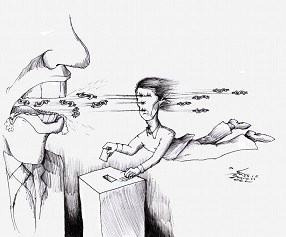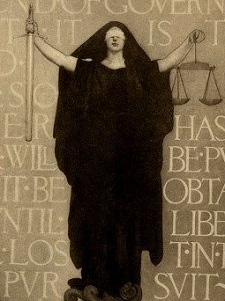America’s Pseudo-Democracy
U.S. pundits mock countries, like Iran or China, where candidates are screened before they go on the ballot, but America has a similar approach, with candidates needing approval from plutocrats and special interests. But that’s just one problem of U.S. Democracy.
Given the dangerous results of the recent election in the United States – one that saw the Republicans, a right-wing party increasingly populated with neocon warmongers, reactionaries and plutocrats take control of both houses of Congress – it might be time to take a look at a sober look at U.S. democracy.
We can begin be taking note of the generic observation made by Winston Churchill: “Democracy is the worse form of government, except for all the other forms that have been tried from time to time.” The implication here is that democracy is really not the God-blessed system so many of Americans take it to be.
For instance, the public in a democracy is just as vulnerable to manipulation by various elites and interest groups as are those in non-democratic environments. The difference is that a democracy has a built-in procedure that allows citizens to have second thoughts about past manipulation. Thus they can kick out the bastards they were originally persuaded to kick in – even if it is often only to replace them with a new set of bastards. This repeated procedure results in a time limit on the damage elected leaders can do. It is, of course, possible that democratically elected politicians can come close to ruining a nation (their own as well as others) even given their limited tenure.


































